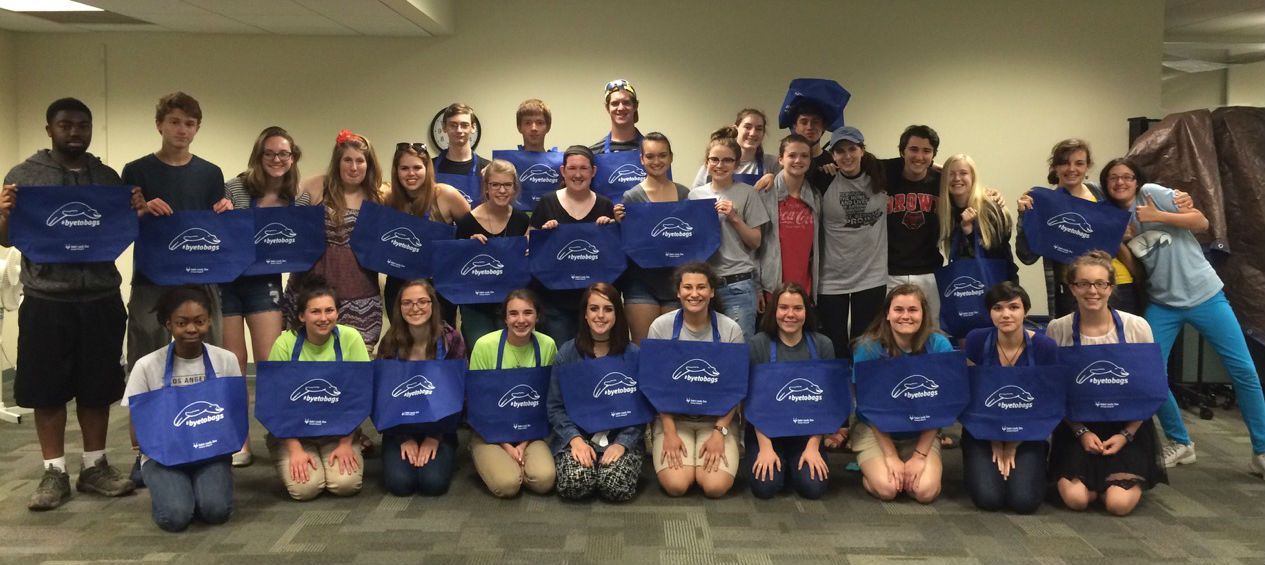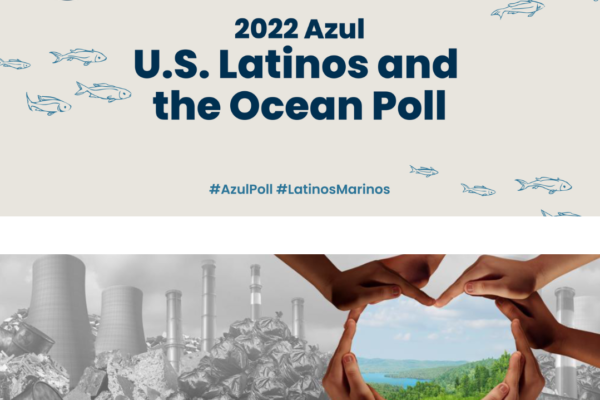
Teens with Bags: The ZooALIVE teen volunteers from the Saint Louis Zoo pose with their #byetobags reusable bags! They are ready to go and spread the reusable bag message!
In the summer of 2016, Phillipe Cousteau, grandson of legendary explorer Jacques Cousteau, recognized youth as “the hope for our oceans.” Across the globe, there is an ever-growing group of young and passionate leaders with confident “can-do” attitudes ready to make positive changes for our planet. Today more than ever, these youth are involved in major conservation action projects. Countless organizations have dynamic youth groups helping them carry out their conservation missions. The Ocean Project placed special emphasis on youth engagement in 2016, with plans for expansion in 2017 and beyond. Despite these advancements, there is an untapped potential to allow youth to not only be involved in, but also build and lead conservation action projects.
Providing youth with the right amount of guidance, while allowing them to create and accomplish meaningful actions for our oceans can reap invaluable benefits. During the course of the Innovative Solutions Grants program, our partners provided youth with some powerful opportunities. Program grantees uncovered new and innovative approaches towards youth engagement in the process.
At the Arizona-Sonora Desert Museum, Debbie Colodner strongly encouraged others to, “engage the power of young professionals or university students to help make the case,” which, in their case, was that, “millennial customers care about where their (seafood) comes from”. Kirinne at St. Louis Zoo noted that, “one of the most exciting and successful parts of our campaigns was allowing the teens to experiment with the delivery of the #byetobags,” as their youth group learned a lot about not only engaging visitors on-site, but also through social media. The team led by the Woodland Park Zoo, summed it all up when writing, “empowering youth leaders to develop public, and especially peer-to-peer, conservation engagement efforts is highly recommended and can lead to exciting new engagement strategies!” They also added, “when teen leaders are developing public engagement efforts, their enthusiasm and ideas need focus to ensure successful implementation.”
Rather than looking only at the opportunity to reach youth with information, many of the program grantees went “above and beyond” to explore how they might empower youth to improve and amplify a conservation message. The combined experience of grantees at the Oregon Coast Aquarium, New England Aquarium, Riverbanks Zoo, Saint Louis Zoo, Arizona-Sonora Desert Museum and Woodland Park Zoo all point towards an opportunity to increase youth leadership development all while advancing their conservation missions.
In 2017, let’s strive to provide youth with more leadership opportunities and turn their positive “can-do” attitudes into meaningful action for our oceans. Stay tuned for more from the World Oceans Day Youth Advisory Council and from The Ocean Project on exciting new youth engagement and youth leadership development opportunities!



